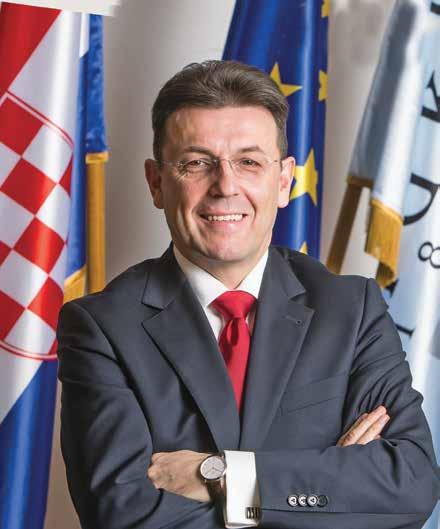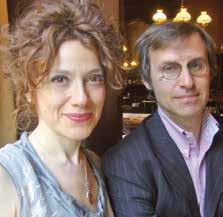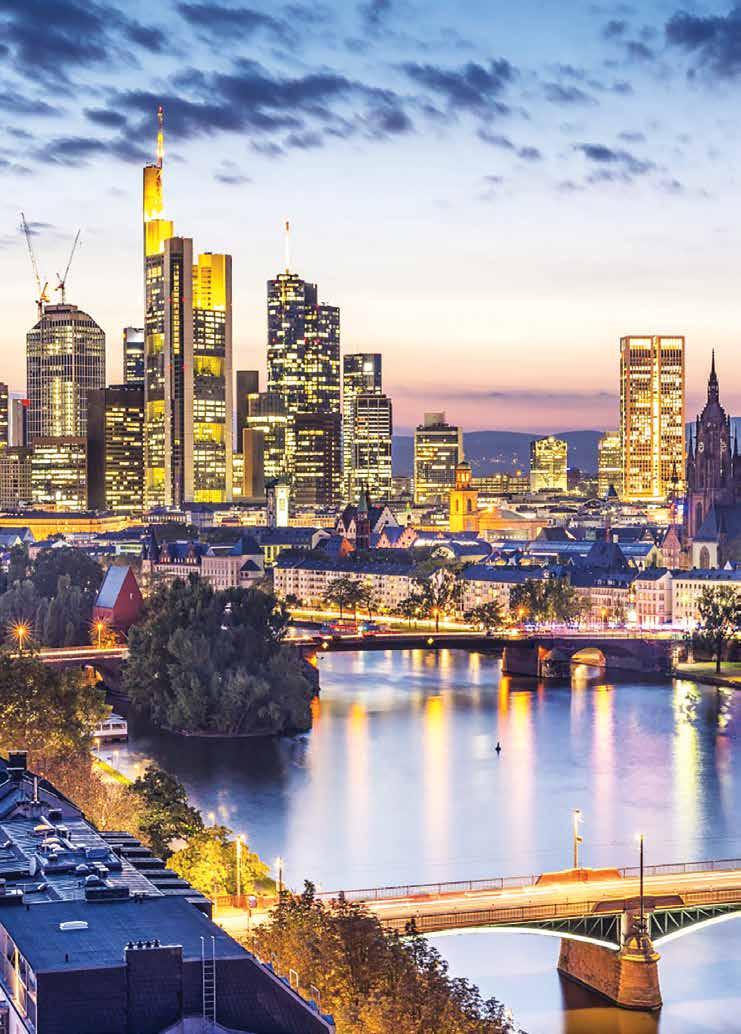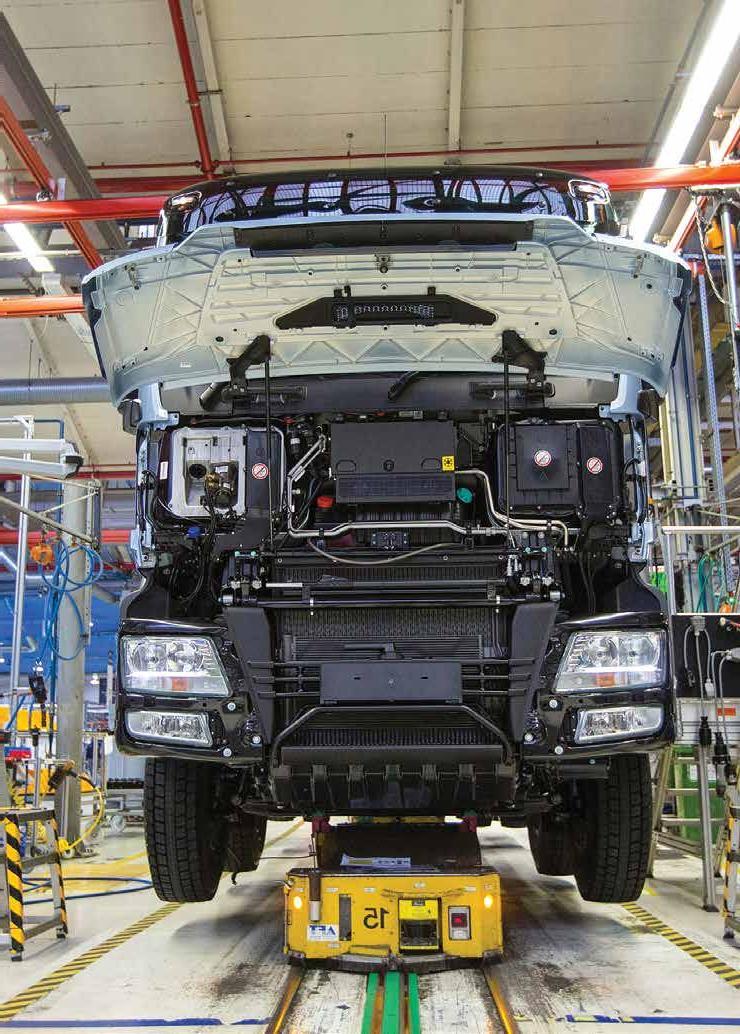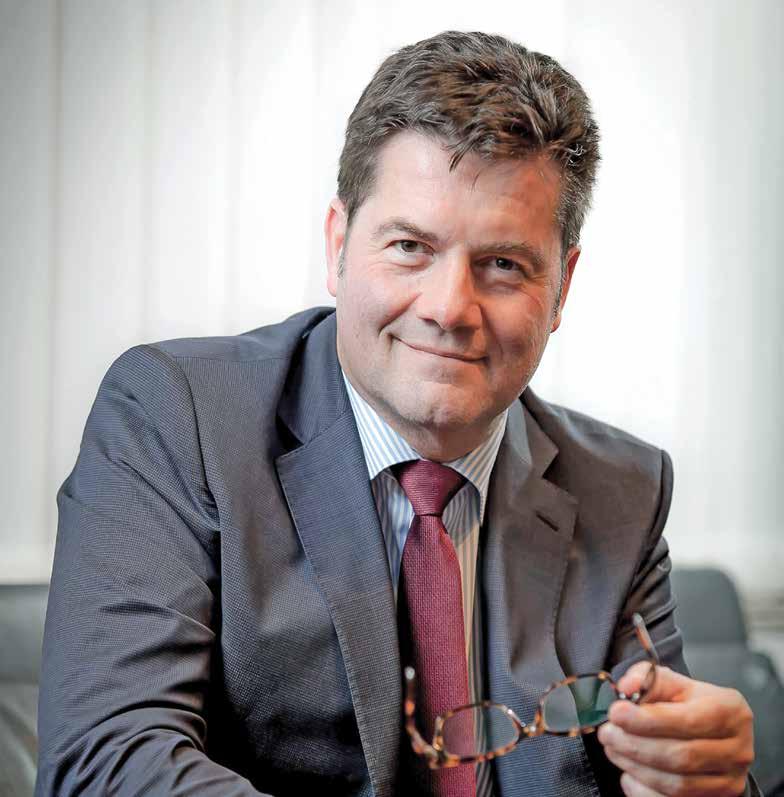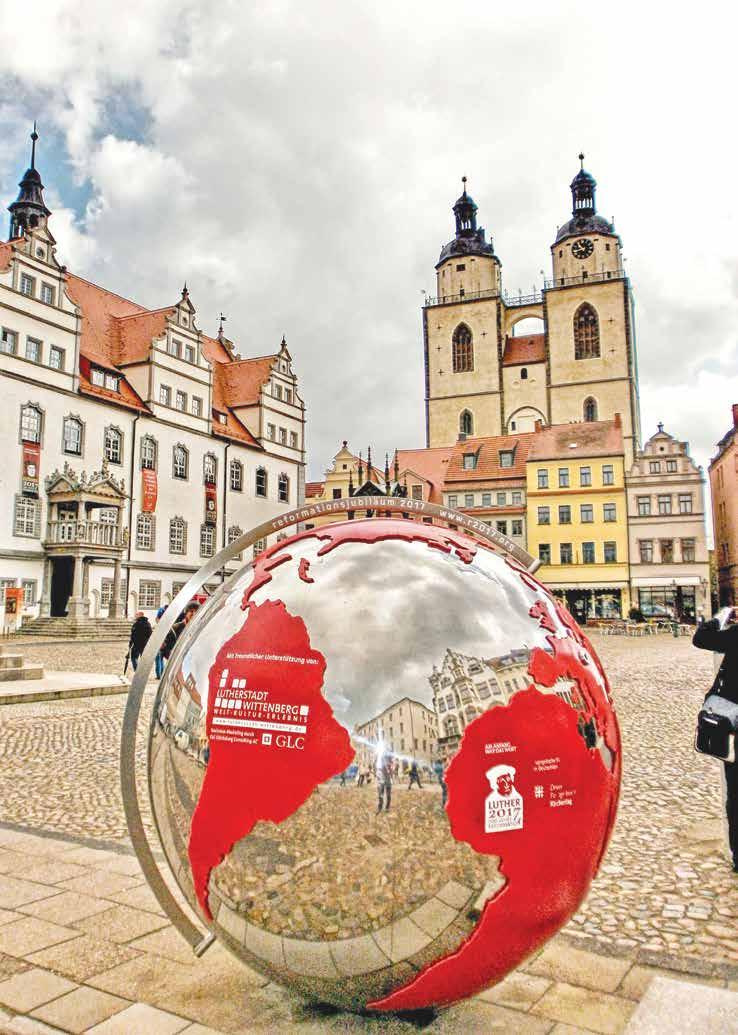
7 minute read
SERVICES TAILORED TO FIT YOUR BUSINESS
NICOLAS BARON ADAMOVICH
Advertisement
INTERVIEW
SERVICES TAILORED TO FIT YOUR BUSINESS

Germany is recognized as an important commercial partner: GCC members employ a workforce of approximately 80,000 employees in Croatia
Croatia’s economy is finally back on a moderate growth path. Substantial EU funds stand ready to support investments and development but their utilization rate is far from satisfactory. Structural reforms continue to be an urgent imperative for political decision makers - says the President of the German-Croatian Chamber of Commerce, Nicolas Baron Adamovich for our magazine.
You have been in Croatia for many years, and you are well acquainted with its economy. Since joining the EU, how much has the country develop the features of a well-organized, market-driven European economy? ― Croatia’s membership in the EU is a blessing for the country’s economic design and development. It helps strengthening the orientation towards an efficient market economy. While much has been achieved in this context over the past decade, Croatia’s economic constitution still suffers from a number of inefficiencies. One of them is an inadequately strong position of public companies in several sectors – a fact which, as a rule, impedes economic progress. Others are linked to legal practice and public administration. In principle, the theoretical s etup does promise fair competition and attractive investment terms in most of the economically relevant spheres. Practical implementation too often still encounters circumstances different from those laws and regulations would have suggested
How do you assess the overall economic situation in Croatia? ― Facts and figures support the improved tune, and are by no means limited to the remarkable results of Croatia’s tourism sector. Other important factors relate to impressive growth rates in Croatia’s foreign trade, sound and growing internal consumption and increasing investments. Also, public finances are showing encouraging trends which provide reasons to believe that budget deficit and foreign debt figures are reasonably well controlled. Alas, unemployment remains very high and particularly so youth unemployment. Unfortunately, this tour d’horizon can’t do without mentioning two major downside risks. One is, of course, the crisis linked to Agrokor which poses a threat to the countless supplier companies and thousands of jobs. The second downside risk is e ven more significant, certainly so in
the mid- and long-term: it’s demographics! The number of employable persons lea ving Croatia in search of more rewarding economic terms abroad has reached an alarming scale and threatens to depopulate entire areas.
Does the f oreign business community have a good, open dialogue with the Government of the Republic of Croatia? ― Yes, this I can absolutely confirm on behalf of our chamber. Doors are open for us in all ministries, on all levels. We also have a particularly intense cooperation with the Croatian Chamber of Commerce, and on the German side, with the German Embassy to Croatia. We feel that our close and steady contact with effective and potential investors provides us with highly relevant practical information on investment conditions in Croatia. Hence we are mor e than glad to share this information with public bodies. In some instances we do so in co-ordination with representatives of other business communities, such as our Austrian or Swiss partners.
How do you perceive a foreign business community that operates in the country? ― Most foreign investors operate in Croatia via companies registered in Croatia under Croatian law. The overwhelming majority of such companies is managed by Croatian nationals. These companies should not be treated differently from other Croatian companies – neither better nor worse! According to expert research, such as the one done by the Foreign Investors Council (FIC), there is a clear statistical correlation between foreign capital in Croatian companies and above average investment, employment and profitability parametres. Such relation makes it easy to conclude: foreign capital does – with inevitable but rare exceptions to the rule – create a huge added value for the Croatian economy, it brings innovation, jobs, state-of-the-art know-how, financial liquidity, international connectivity – and it pays substantial taxes into the Croatian state budget.
What do you see as key challenges when it comes to business climate? ― The key challenges for Croatia’s business and investment climate haven’t changed much over the past years.
Tax authorities haven’t succeeded in setting predictable standards in all areas and are at times perceived as taking ar

bitrary actions, incidentally to the detriment of successful market participants. Also, tax policies haven’t been sufficiently stable over time to take away investors’ uncertainties regarding a durable tax landscape. Court procedures take too long and their outcomes don’t always seem to follow the same logic. Public administration is often inefficient, bureaucratic and slow – with laudable exceptions of course. Local authorities are regularly reported to inhibit external investments for illogical reasons. Bidders complain about costly public tenders’ outcome sometimes being pre-determined or annulled for marginal reasons. Publicly owned companies’ management needs to be depoliticised. Doing business in Croatia often means moving along a bumpy road, but in many cases it nevertheless brings about rewarding outcomes. Just imagine how Croatia could flourish if most of the business obstacles were changed to the better!
How many German companies are interested in investing in Croatia? ― Croatia’s membership in the EU has helped a lot in putting Croatia on the map of potential investment locations since 2013. In the light of this membership, investors count on structural similarities, free trade to and from the huge EU market, and on a familiar set of market economy rules. Insofar investors’ interest – whether from Germany or elsewhere – will always be a function of the investment conditions Croatia offers as compared to any other competing location. Croatia’s government therefore absolutely needs to pay steady and intense attention to make sure Croatia offers attractive and competitive investment conditions for local and foreign investors. If Croatia does not succeed in continuously attracting substantial investments, the country’s economic prospects can quickly turn dull – and with them the economic standing and perspectives of its population!

Which German companies are considered to be the most attractive for investment? ― Germany is a large and wealthy country with countless effective and potential investors into basically every sector you can think of. Topics where we see considerable interest from Germany include tourism, renewable energy, environmental engineering, energy efficiency, infrastructure and logistics, agrarian economy and food industry, retail and distribution, IT, mechanical engineering, metalworking industry, forestry and wood processing.
How can Croatia solve the problem of lack of skilled labour, and is dual education a solution to it? ― O ur chamber is substantially engaged in supporting the creation of early practical job experience. It does so in a strategic p artnership with the Zagreb-based foundation Znanje na Djelu, in an initiative promoting well-organised internships among our members, and b y supporting a large student scholarship programme for work placements in Germany (“Stipendienprogramm der Deutschen Wirtschaft”), initiated by Ost-Ausschuss der Deutschen Wirtschaft. Dual education is a topic of its own and, if understood and implemented properly, promises huge beneficial effects for the Croatia’s economy and society. In dual systems, companies run the training themselves and according to their specific needs. For young people, the transition fr om school to work is made much easier. Our chamber has organised a number of its member firms and vocational schools into a project consortium. Based on the know-how provided by German companies and from the German chamber network, the project seeks to deliver evidence that dual training is feasible in Croatia, and that it is the right choice for companies and for the youth.
How many members does the German Chamber of Commerce have in Croatia and what services do they expect you to provide the most? ― We have more than 390 members. Generally speaking, we support interconnectedness between the Croatian and the German business w orlds and facilitate market entries for investors from bo th countries when entering the other country (this is a two-way street). In addition, we speak up for our members’ joint interest vis-à-vis public bodies, ministries and members of the government. We also organize seminars, conferences, delegations’ journeys, trade show appearances, workshops and networking events. While our natural base is Zagreb, we deliberately extend our activities to other regions within Croatia for quite some years already and have, for instance, recently named an honorary representative of our chamber in Split to enhance our presence in Dalmatia. Else, we attend visiting delegations from Germany in Croatia and present Croatia as an investment destination on specialized events in Germany. And, last but not least, we provide basic research, book-keeping and translations services.


